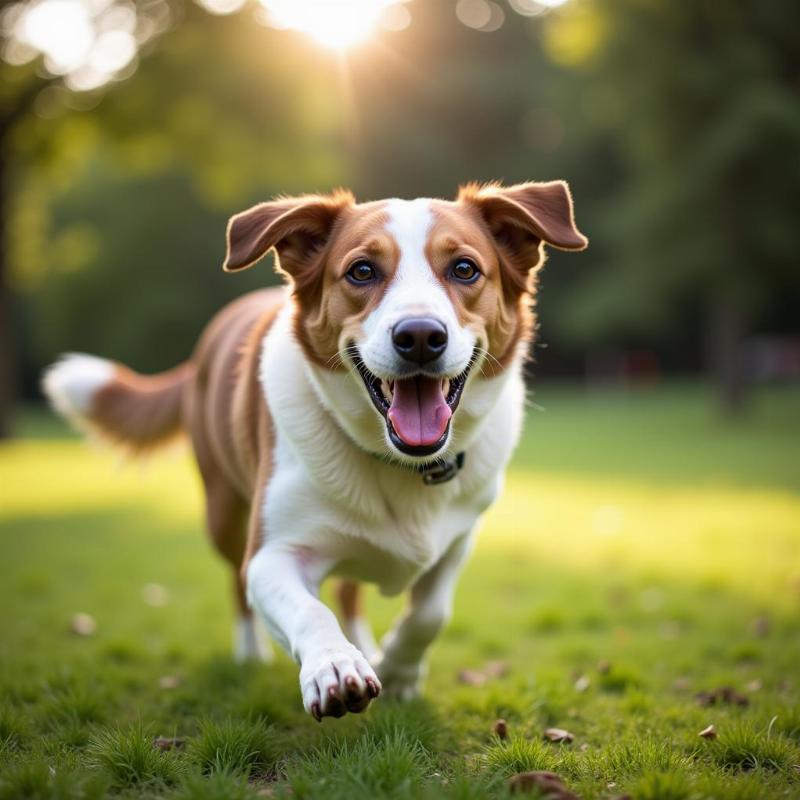Understanding what an altered dog means is crucial for responsible pet ownership in the United States. Simply put, an altered dog is one that has undergone a surgical procedure to remove its reproductive organs. This procedure is commonly known as spaying for females (removal of ovaries and uterus) and neutering for males (removal of testicles). Knowing the implications of altering your dog can help you make informed decisions about their health and well-being, contributing to a happier and healthier life for your furry friend.
The Benefits of Altering Your Dog
Altering your dog offers numerous health and behavioral benefits, making it a highly recommended practice by veterinarians across the US. For female dogs, spaying eliminates the risk of uterine infections and uterine cancer, and greatly reduces the chances of mammary cancer, especially if done before the first heat cycle. Male dogs benefit from neutering by eliminating the possibility of testicular cancer and reducing the risk of prostate problems.
Beyond the direct health advantages, altering also impacts behavior. Neutered males are less likely to roam, mark territory with urine, and display aggressive behaviors related to mating. Spayed females avoid the hormonal fluctuations associated with heat cycles, which can lead to mood swings and unwanted attention from male dogs. This leads to a calmer, more predictable companion.
Misconceptions about Altering
Despite the overwhelming benefits, some misconceptions surrounding altering persist. One common concern is weight gain. While altered dogs can be prone to weight gain due to hormonal changes, this can be easily managed with a balanced diet and regular exercise. Your veterinarian can recommend appropriate food portions and activity levels to maintain a healthy weight for your altered dog.
Another misconception is that altering changes a dog’s personality. While certain behaviors linked to mating instincts diminish, the dog’s core personality remains intact. Their playful nature, loyalty, and trainability are not affected by the procedure.
 Happy Altered Dog
Happy Altered Dog
Finding a Veterinarian to Alter Your Dog
Finding a qualified veterinarian to perform the procedure is essential. The American Veterinary Medical Association (AVMA) and local humane societies are excellent resources for locating reputable veterinarians in your area. Don’t hesitate to ask about the veterinarian’s experience with spaying and neutering, as well as their post-operative care protocols.
What to Expect After the Procedure
Post-operative care is crucial for a smooth recovery. Your veterinarian will provide specific instructions regarding pain management, activity restriction, and incision care. It’s essential to follow these instructions carefully to prevent complications and ensure proper healing. Typically, dogs recover fully within a couple of weeks.
Conclusion
Altering your dog is a responsible choice that offers significant health and behavioral benefits, contributing to a longer, happier life. By understanding what the procedure entails and addressing common misconceptions, you can make informed decisions for your canine companion. Choosing to alter your dog not only benefits your pet but also helps control pet overpopulation, a significant concern in the US.
FAQ
- When is the best time to alter my dog? Generally, puppies can be spayed or neutered around six months of age. However, consult your veterinarian for personalized advice.
- Is altering expensive? The cost varies depending on location and clinic. Many low-cost spay/neuter clinics are available throughout the US.
- Will my dog be in pain after the procedure? Veterinarians provide pain medication to manage discomfort during recovery.
- How long does the recovery take? Most dogs recover fully within two weeks, but activity restriction is necessary during the initial healing period.
- Will altering change my dog’s personality? No, altering addresses mating-related behaviors but does not change the dog’s core personality.
- Where can I find a reputable veterinarian to perform the procedure? The AVMA and local humane societies can help you find qualified veterinarians in your area.
- What are the risks associated with not altering my dog? Unaltered dogs are at a higher risk for certain cancers and reproductive health issues.
Beautdogs.us is your premier destination for comprehensive dog care information in the United States. We offer expert advice on everything from breed specifics to pet health and wellness. Whether you’re a seasoned dog owner or just starting your journey, Beautdogs.us provides reliable resources and insights to help you navigate the joys and responsibilities of dog ownership. Contact us for all your dog-related queries. Email: [email protected], Phone: +1 501-555-7529.